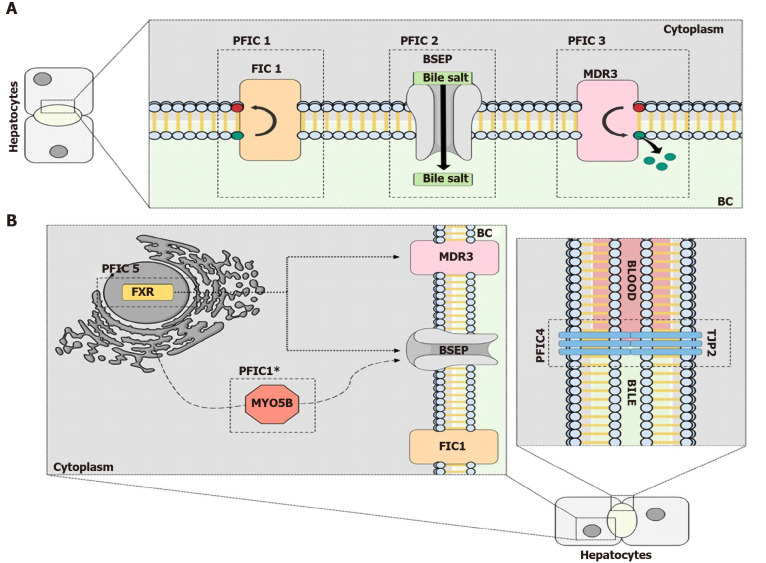Figure 2.
The molecular mechanisms behind progressive familial intrahepatic cholestasis. A: The classic types of Progressive Familial Intrahepatic Cholestasis (PFIC). PFIC 1 is related to mutations in the genes that encode the flippase familial intrahepatic cholestasis 1, which flips phospholipids in the plasma membrane. Mutations in the bile salt export pump (BSEP) protein, a bile salt transporter, results in PFIC 2. The third type of PFIC is caused by mutations in the gene that encodes the Multidrug resistance class 3 glycoprotein (MDR3) protein, another lipid flippase; B: The newer types of PFIC. Mutations in the tight junction protein-2 protein, which prevents the mixing of blood and bile acids, are responsible for PFIC 4. PFIC 5 is a result of mutations in the farnesoid X receptor protein, a transcription factor important for BSEP and MDR3 ecpression. Mutations in Myosin VB result in a PFIC phenotype because the trafficking of the BSEP protein from the endoplasmic reticulum to the plasma membrane is disrupted. PFIC: Progressive Familial Intrahepatic Cholestasis; FIC1: Familial intrahepatic cholestasis 1; BSEP: Bile salt export pump; MDR3: Multidrug resistance class 3 glycoprotein; TJP2: Tight junction protein-2; FXR: Farnesoid X receptor.

